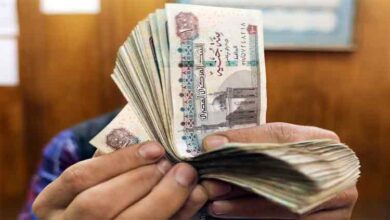Nigerian President Seeks Senate’s Backing for Regional Military Intervention in Niger

Nigerian President Bola Tinubu has written a letter to the country’s Senate, urging its members to support a regional military intervention in neighboring Niger. This comes after a coup led to the overthrow of the democratically elected government of President Mohamed Bazoum last week. As the current rotating president of the Economic Community of West African States (ECOWAS), Nigeria holds significant influence in the region and has imposed sanctions on Niger. The situation has drawn condemnation from Western countries, who view Niger as a crucial partner in the fight against armed groups linked to al-Qaeda and ISIL in the Sahel region. In this article, we delve into the details surrounding President Tinubu’s call for military intervention and the broader implications of the coup in Niger.
President Tinubu’s Call for Military Intervention
In a letter addressed to Nigeria’s Senate, President Tinubu has sought support for a regional military intervention in Niger. He requested a “military buildup and deployment of personnel” to enforce compliance with the demands of the military junta in Niger, should they persist in their defiance following the coup that ousted President Mohamed Bazoum.
ECOWAS Sanctions on Niger
As the rotating president of ECOWAS, Nigeria played a key role in imposing sanctions on Niger following the coup. These sanctions include border closures and the suspension of all financial and commercial ties with the country. The Central Bank of West African States (BCEAO) also cancelled a planned 30-billion-CFA-franc ($51m) bond issuance by Niger.
ECOWAS Delegation’s Efforts
ECOWAS dispatched a delegation, led by former Nigerian leader Abdulsalami Abubakar, to negotiate with the coup leaders in Niger. However, the talks did not take place as General Abdourahamane Tchiani, the coup leader, refused to meet the delegation. Tchiani has publicly stated that he will not bow to pressure to reinstate President Bazoum and has denounced the sanctions as “illegal” and “inhumane.”
Nigeria’s Leadership Role in the Region
As the regional powerhouse with the largest armed forces in West Africa, Nigeria is expected to lead any intervention force in Niger. President Tinubu’s eagerness to assert Nigeria’s authority in the region, known as the “coup belt,” is evident in his call for the Senate’s support for military action.
Western Condemnation and Aid Cuts
Western countries have strongly condemned the coup in Niger, viewing the country as a critical partner in the fight against terrorist groups in the Sahel region. Many of these nations have cut aid to Niger, despite it being one of the world’s poorest countries and heavily reliant on external assistance for nearly half of its annual budget.
Conclusion
The situation in Niger following the coup has put Nigeria in a position of regional leadership as the head of ECOWAS. President Tinubu’s call for military intervention reflects Nigeria’s commitment to restoring democratic governance in Niger and asserting its influence in the region. However, the response to the coup and the imposition of sanctions have raised concerns about the impact on Niger’s vulnerable population and the broader implications for stability in West Africa. As the crisis unfolds, the international community will closely monitor developments and the actions taken by ECOWAS and its member states.


